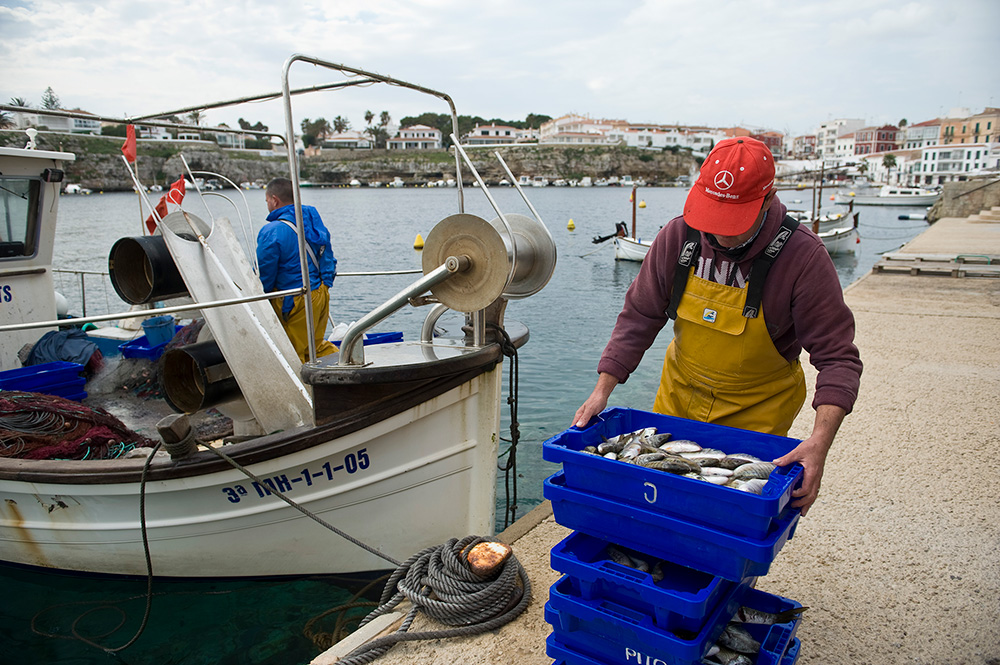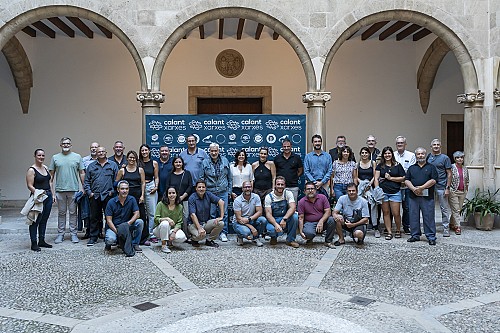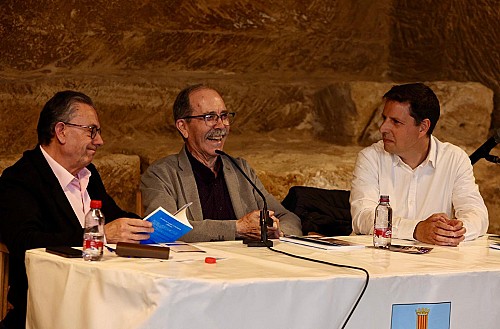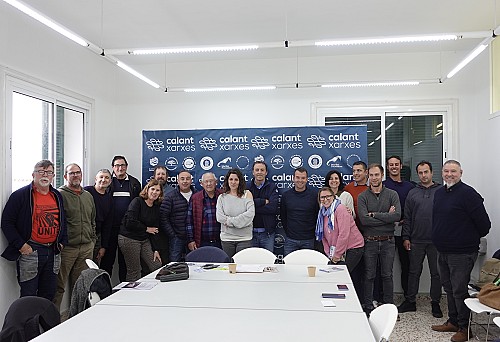Fish that is fresh, local, seasonal and sustainable
LIFE and Marilles launch a programme to transform the Balearic fishing fleet into one of the most sustainable of the Mediterranean
Low Impact Fishers of Europe (LIFE) and Marilles Foundation have signed an agreement to boost small-scale, artisan fishing on the Balearic Islands in the transition towards sustainability – environmental, social and financial. The programme has a budget of €150,000 for the next three years.
LIFE is a non-profit organisation that aims to be the mouthpiece of small-scale fishers (SFFs) in Europe, and spread their message to broader shores. These fishermen use their low impact fishing methods and expertise in the marine environment; historically, however, they haven’t enjoyed an efficient representation in the Member States of Europe.
The fishing fleet of the Balearic Islands is primarily artisan. There are currently around 230 boats in the 16 fishermen’s guilds on all the islands. The fishing activity on each port is diverse; it is very seasonal, and marked by the geographic and socio-economic peculiarities of each territory, but every one of them is affected by vast structural changes such as the loss and ageing of the fleet, a lack of generational replacement, degradation of marine ecosystems and reduction of fishing stocks, the appearance of invasive species, climate change and changes in consumer models. All of this could mean an uncertain future for fishing, on the Balearics as well as the northwestern Mediterranean. The best guarantee for the future is for marine resources and the sea itself to be in an excellent state, so we can face up to all of these challenges, which are often outside our control.
For years now, fishermen, regional and mainland administrations and third sector organisations in the Balearics – such as GEN-GOB, the Guild of Fishermen of Ibiza, the WWF or Soldecocos, among others – have been working to develop sustainable fishing on the islands. Now, with LIFE’s project “STEWARDS OF THE SEA– Promoting sustainable fisheries on the Balearic Islands using small-scale fisheries as a driving force”, we intend to complement and add value to much of the work that is already being done, working closely with artisan fishermen as agents of change towards sustainability.
The main course of action of the programme is:
- To promote sustainable fishing as agreed with professional fishermen, based on the co-management governance model
- Facilitate the implementation of low impact measures
- Develop initiatives to value local fishing products and promote a food system that is fair and sustainable at a local level
The programme will also work towards promoting socioeconomic and cultural research in the fishing sector in the Balearics; and also to achieve a generational replacement that guarantees the continuity of the professional fishing sector.
The project will be coordinated by Anna Masdeu Lalanza, who, for the past three years has directed the local fishing collective Grupo de Acción Local de Pesca, in the Costa Brava – this area of mainland Spain has generated many successful projects that can also be of interest to us in the Balearic Islands.
The coordinator of the project said: “I believe the Balearic Islands are in a great position to take a qualitative leap and become an example and an inspiration, implementing co-management measures towards professional, artisan, low-impact sustainable fishing”.
The Marilles Foundation finances the first phase of the project with €150.000. Their ambition is to continue in the medium and long term, and they are open to additional contributions to maximise its potential. Aniol Esteban, director of Marilles, explains: “Fishing is one of the main pressures suffered by the Balearic Sea and, at the same time, it has the potential of becoming the best ally for its conservation. Working with fishermen is essential if we want to turn the Balearics into an example of marine conservation worldwide. We hope the project we are launching with the LIFE organisation brings power and energy to much of the work that already exists in the area, so that the Balearic fishing fleet becomes the most sustainable in the entire Mediterranean”.
APPENDIX: Course of action of the “STEWARDS OF THE SEA” project:
- To promote sustainable fishing as agreed with professional fishermen, based on the co-management governance model. This innovative professional fishing management model aims to achieve sustainable fishing activity by making the fishing sector the focus, and taking decisions alongside the scientific sector, the administration and NGOs relating to marine conservation and fishing sustainability areas. LIFE forms part of various co-management committees supporting artisan fishermen, in neighbouring Catalonia as well as other areas in the Mediterranean such as Italy, Cyprus and Malta. Within the framework of the agreement with Fundación Marilles, LIFE will ensure that co-management plans with the fishing sector, local fishing action groups, scientists, local NGOs and, of course, the administration are implemented.
- To support the professional fishing sector and give it the tools to become a proactive change agent towards sustainability and give visibility to the actions they embark on. LIFE will be in charge of identifying – and, wherever possible, carrying out – any activities involving training, education and the exchange of good practices to empower the fishing sector in the Balearic Islands, develop management solutions that guarantee “clean” fishing and achieve a firm commitment towards sustainability and the protection of marine ecosystems. In 2018, the marine reserve of Tagomago was approved, in the northeast coast of Ibiza. This project was led by the Guild of Fishermen of Ibiza and supported by WWF, GEN GOB Ibiza, the Island Council and the local fishing action groups of Ibiza and Formentera. An example of co-management for the conservation of an area of natural interest that was born from an idea of the local fishermen: a model to follow in other areas of the Balearics and, indeed, the rest of Spain.
- Develop initiatives that value local fishing products and promote a food system that is fair and sustainable at a local level.LIFE, GOB Menorca and the Guild of Fishermen of Ibiza (working alongside Slowfood and the Global Footprint Network) are members of another project, co-financed by the MAVA Foundation (Towards sustainable and fair food systems in the Euro -Mediterranean region), which is pending approval. Within this project, activities will be organised that relate to valuing products generated by artisan production systems and their contribution to food systems that are fair and sustainable in the broadest sense of the word, both in Menorca and in Ibiza.
- Promote socioeconomic and cultural research in the fishing sector in the Balearics.In the framework of fishing management plans, it will be necessary, on the one hand, to gather the maximum traditional ecological knowledge of the fishing sector; and on the other, to create socio-economic plans to go alongside those fishing management plans. Thus, it is necessary to help any entity with experience in this area to emerge, as well as to promote research wherever we find a lack of information. For optimal bio-economic management, we need to incorporate the knowledge of social science.
- Contribute to achieve a generational replacement that guarantees the continuity of the professional fishing sector.This line of action has been identified as something urgent to tackle, which is why we have included it in our list of priorities. We not only have to promote the incorporation of new fishermen/women into the fleet – given the imminent retirement of a large number of them; in addition, those who do so must be ready to take on every future challenge.
Marilles in the media
- 10/12/2024 : "«La flota de arrastre balear es la más maltratada del litoral mediterráneo español»"
- 09/12/2024 : "La Fundación Marilles pide que se defienda “la singularidad de la flota pesquera de Baleares”"
- 09/12/2024 dBalears: "Marilles demana que es defensi la singularitat de la flota pesquera balear"





